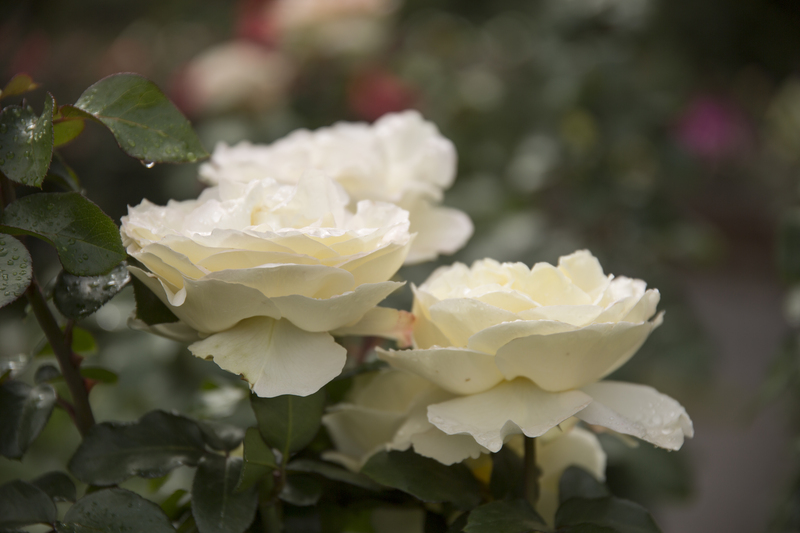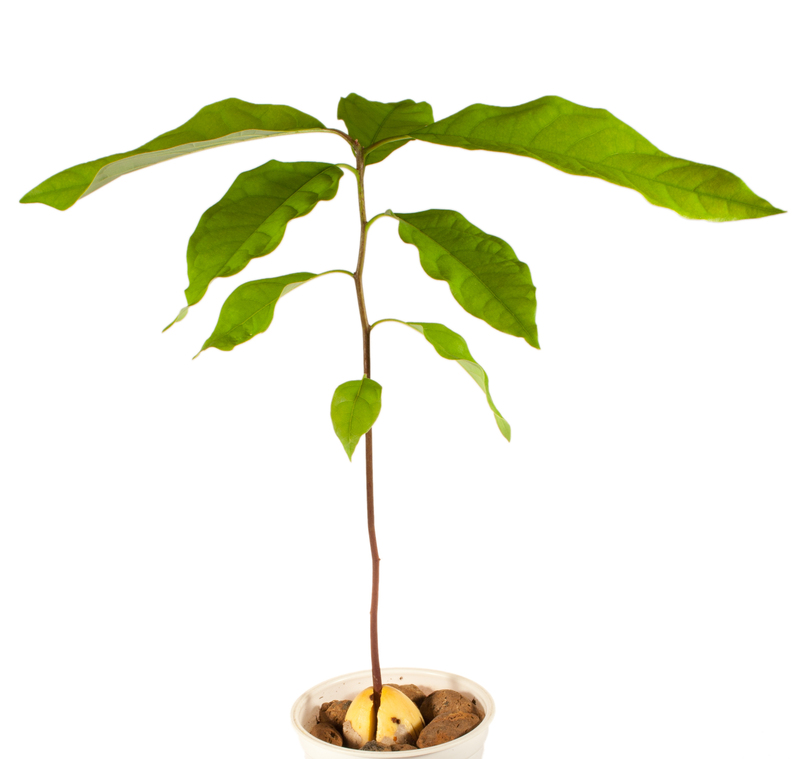Beginner's Guide to Gardening: 9 Essential Tips to Cultivate Success
Posted on 19/09/2025
Beginner's Guide to Gardening: 9 Essential Tips to Cultivate Success
Are you looking to embrace the joys of gardening, but feeling a bit overwhelmed as a beginner? Whether your goal is a lush flowerbed, a tasty vegetable patch, or simply a serene green corner, you're in the right place! This comprehensive beginner's guide to gardening unveils nine indispensable tips to help you get started and nurture your garden to success.
Why Start Gardening?
Gardening is a rewarding venture, connecting you with nature while offering numerous benefits:
- Improved mental health thanks to stress reduction and mindfulness.
- Physical activity--digging, planting, and weeding can give you a gentle workout.
- Homegrown produce that's fresh, delicious, and cost effective.
- Greater appreciation for the environment and biodiversity.
Ready to unlock these advantages? Dive into our gardening tips for beginners below!

9 Essential Gardening Tips for Beginners
1. Choose the Right Location
Location is the foundation for every successful garden. Analyze your outdoor space and observe where sunlight falls throughout the day. Most plants--especially veggies and flowers--need at least 6-8 hours of direct sunlight to thrive. Avoid low spots where water pools, and ensure easy access for watering and maintenance. Raising beds or container gardening are perfect options for yards with limited space or poor soil.
2. Understand Your Soil
Healthy soil is vital for plant growth. Begin by digging a small hole and examining the soil texture. Is it sandy, clay-heavy, sticky, or rich with organic matter? For the best gardening results:
- Test your soil's pH and fertility with a soil testing kit (available at gardening centers).
- Add compost or organic matter to enrich impoverished soil and enhance drainage.
- Mulch your beds to retain moisture, control weeds, and moderate soil temperature.
Soil improvement is a gradual process. Patient, continuous care will yield lavish returns over time.
3. Start Small and Simple
A common mistake for novice gardeners is to bite off more than they can chew. Instead, focus on a manageable plot or a few containers. This enables you to learn as you grow, without feeling overwhelmed. Select a handful of easy-to-grow plants--herbs like basil, parsley, or vegetables like radishes and lettuce--to develop your confidence and skills.
- Plan for progression. Gradually add new plants or beds as your knowledge deepens!
4. Pick the Right Plants
Selecting the appropriate plants for both your region and your gardening conditions is crucial. Use plant tags, seed packets, or websites to check for:
- USDA Hardiness Zone
- Sunlight needs: Full sun, part shade, or full shade?
- Watering requirements
- Mature size--will your plants fit the chosen spot?
For regional suggestions, visit your local nursery or cooperative extension. Favor native species for a beginner's garden--they're often easier to manage, adapt superbly, and attract helpful pollinators and wildlife.
5. Invest in the Basic Gardening Tools
While you don't need a shed full of expensive equipment, a few well-chosen tools make every garden job easier and more enjoyable:
- Gloves to protect your hands
- Trowel for transplanting and digging small holes
- Hand fork and hoe for weeding and soil preparation
- Watering can or hose with adjustable nozzle
- Pruners or shears for trimming
- Bucket or garden trug for trimmings and harvests
Clean and store your tools properly; this routine extends their lifespan and ensures they're ready for next season.
6. Master Watering Techniques
Watering is a balancing act! Too much or too little can be detrimental. To maximize your gardening success:
- Water deeply and less frequently--encourages strong root systems.
- Morning is the best time to water, minimizing evaporation and disease risk.
- Avoid over-watering; only irrigate when the top inch of soil feels dry (for most plants).
- Use mulch to reduce your watering needs and keep roots cool.
Monitor weather forecasts and adjust your routine; nature often helps out with rain!
7. Feed Plants Wisely
Plants, like people, need nourishment! Beyond rich soil, periodic feeding keeps your garden flourishing. Here's how to fertilize effectively:
- Apply slow-release, organic fertilizer in spring and midseason.
- Avoid over-fertilizing; excess nutrients can weaken plants and harm the environment.
- Compost is a gardener's best friend--use it to top dress beds or mix into soil annually.
Tip: Each plant's needs vary, so follow variety-specific guidance on feeding schedules.
8. Stay on Top of Garden Maintenance
Maintenance can sound daunting, but a few minutes each day delivers remarkable results.
- Regularly remove weeds, which steal water and nutrients from your prized plants.
- Monitor for pests and diseases; act early to prevent an outbreak.
- Prune dead or damaged branches to foster growth and air circulation.
- Harvest produce or cut flowers frequently to encourage further yield.
Consistency is key: Dedicate a little time regularly for upkeep, and your garden will reward you generously.
9. Embrace Learning and Keep Growing
Gardening is a journey, not a destination. Every successful gardener--beginner or expert--continues to learn by doing. Celebrate your triumphs and view mistakes as opportunities to deepen your horticultural wisdom. Engage with gardening communities online, join local clubs, or simply chat with neighbors. The more you share, observe, and experiment, the more vibrant and beautiful your garden will become.
Beginner Gardening FAQ
- What is the easiest vegetable to grow for beginners?
Radishes, lettuce, and beans are ideal starting points. They grow quickly and don't usually require much care. - How often should I water my garden?
This depends on weather, soil, and plant type. A general rule is once or twice per week. Always check soil moisture before watering. - When should I start planting?
Most outdoor planting begins after the last expected frost. Consult your local frost dates for accuracy. - Is it better to start from seeds or seedlings?
Many beginning gardeners find transplants/seedlings easier to manage for the first year, especially for tomatoes, peppers, and perennials.

Gardening for Beginners: Pro Tips for Extra Success
- Keep a garden journal:
Note what works, what doesn't, plant varieties, and weather patterns. - Label your plants to stay organized and avoid forgetting what you planted where.
- Rotate your crops to minimize pests and replenish soils.
- Start a compost bin for free, sustainable fertilizer.
- Attract beneficial insects by planting flowers like marigolds or cosmos alongside vegetables.
Ready to Cultivate Your Gardening Success?
Beginning a garden may feel challenging at first, but with these nine essential tips, you're equipped to grow and nurture your green haven no matter your experience level. Remember--patience, observation, and a willingness to try are the seeds of every great gardener. With time, you'll experience the joy of watching your landscape burst into life and abundance.
If you found this guide helpful, share it with your friends or bookmark it for quick reference. For more advice and gardening inspiration, explore our blog's beginner gardening section!
Happy gardening!
Start small, learn as you go, and enjoy every step of the journey. The garden of your dreams is just a seed away.

